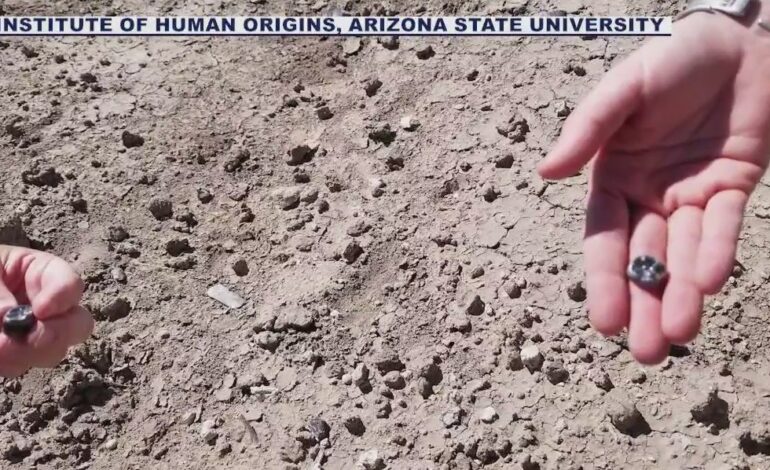ASU Researchers Uncover Ancient Human Teeth in Ethiopia

A research team from Arizona State University (ASU) has made a significant discovery in Ethiopia, unearthing 13 ancient human teeth believed to be between 2.6 and 2.8 million years old. This find may represent a previously unknown species, suggesting that the narrative of human evolution is far more intricate than a straightforward lineage.
The team, led by Christopher Campisano, an associate professor at ASU’s School of Human Evolution and Social Change, is currently investigating the Ledi-Geraru area of the Afar Triangle. This region is renowned for its rich deposits of early human fossils, making it an ideal location for uncovering evidence of our ancestors.
Complexity of Human Evolution
According to Campisano, the discovery highlights the possibility that multiple early human ancestors coexisted in East Africa during this period. “Hominins were probably across most of Africa at some point, but we get these little peaks in certain spots in the African Rift Valley,” he stated. The teeth the team found do not match any known species, indicating a potential new chapter in the story of human evolution.
The research process involved utilizing satellite imagery to identify promising excavation sites, followed by extensive fieldwork to recover the fossils. Campisano noted that while there are not enough teeth to assign a new species name, the characteristics of these teeth differ from those previously cataloged.
Future Research Directions
The implications of this discovery are profound. From these teeth, researchers can glean information about the diet and lifestyle of these early humans. The team is optimistic about locating additional fossils to enrich their understanding of this pivotal time in human history.
The findings underscore the notion that the evolution of humans is not merely a linear progression but rather a complex web of interactions among various species. As research continues, the team hopes to piece together more details about the lives and environments of these early hominins.
This groundbreaking research not only furthers the understanding of human origins but also emphasizes the importance of ongoing exploration in regions rich with fossil evidence. The ASU team remains committed to uncovering more about our evolutionary past, with each discovery offering new insights into the intricate tapestry of human history.






